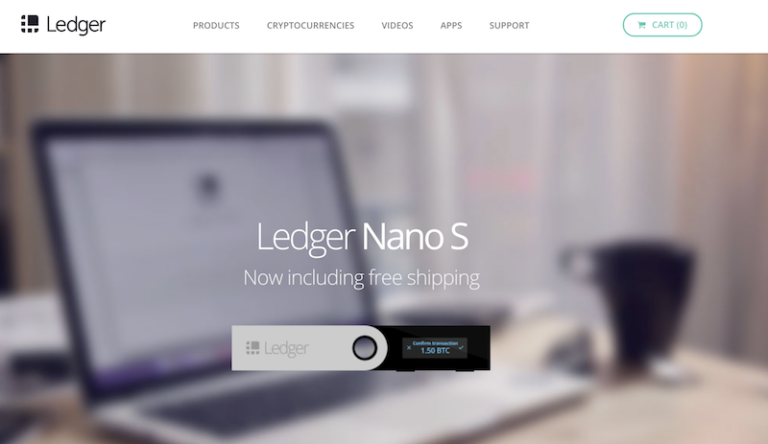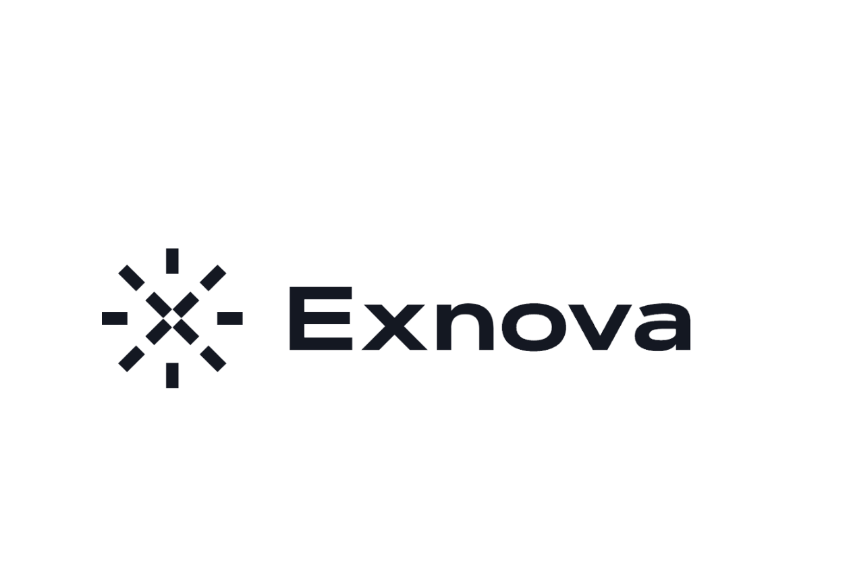A comprehensive wallet provider test can help anyone interested in investing in digital currencies. If you want to buy Bitcoins, Ethereum, Litecoin or many other cryptocurrencies, you must meet one of the basic requirements: you must have an e-wallet. It is the virtual equivalent of the wallet in which we keep real currencies. Our wallet review reveals what types of wallets exist, what differences and similarities they have, and what criteria to consider when choosing the right crypto wallet.
how wallets work
The comparison with wallets for fiat currency may indeed be dubious at first glance. Because both fulfill the same benefit: they are required to hold personal assets and perform payment transactions. With the difference that a wallet is a random sequence of digital characters. Participants in a network can usually see what amount of digital currency is in a wallet using a public database. Yet, he has no access to the assets and cannot even understand who owns them.
To explain the way in which a wallet is accessed, a bitcoin wallet serves as a practical example. For years, bitcoin has been the market leader among digital currencies, which is why a wallet comparison makes sense for those in the know. Owners can access the bitcoins stored in the wallet via the public key. It should be kept with utmost care and should not be shared with others. Because it is valid: whoever owns the private key has access to all bitcoins stored in the wallet. In case of loss, there is no central instance to which the person concerned can turn. It is still difficult to prove that you own bitcoin because it is not a physical good. Furthermore, private keys are anonymous and do not contain any information about the name or address of the owner.
In addition to storing private keys, wallets are also responsible for managing public keys. The difference to the private key is that the public key is shared with other bitcoin owners to initiate transactions. Therefore the recipient of a bitcoin transaction must inform the sender of his wallet address (= public key) in order for BTC to change ownership. It should be noted that each wallet has only one private key, but for each transaction a new public key can be generated, which is specifically assigned to this wallet. So the job of the purse is also the administration of all the keys.
Wallet Experience: What Are The Types?
One Wallet Review states that there is not one best wallet that meets the needs of all users. Because each cryptocurrency owner has different security, cost, flexibility, and other criteria, our wallet provider comparison features a number of different manufacturers. Basically, a distinction should be made between two types of wallets: hot wallets and cold wallets.
Hot Wallets ensure continuous availability0
Hot wallets are digital wallets that can be accessed over the internet at any time. Almost every crypto trading platform also represents a hot wallet, as the deposit and retention of cryptocurrencies on the customer’s account is possible. Furthermore, there are many other providers in our wallet comparison that offer hot wallets without an integrated trading platform. However, those interested in this form of digital asset protection should note that hot wallets always present a higher security risk. Because they are not only accessible to the owner from anywhere, even attackers can exploit security holes in the system and thus access the data. This is especially dangerous if the provider is in possession of the private keys to all of its users’ wallets.
Therefore it is best to only use hot wallets to store small amounts of the relevant currency. There is always a flexible use for some digital asset, without exposing the entire asset to unnecessary risk.
The following wallet types are among the hot buttons:
- Web Wallets
- Mobile Wallets
They differ mainly in the fact that web wallets are accessed via a browser and mobile wallets have an app for smartphones or tablets. The biggest plus of these two solutions is without question the almost constant availability of crypto money, although, for example, the loss of a smartphone also means the loss of a wallet at the same time.
Cold wallets stand up to the highest security
Where else, if not in hot wallets, can investors save their assets? Answer: In a cold wallet. Experience has shown that these can be kept very secure as they are not connected to the internet. Since the wallet is specifically for the safekeeping of private keys in the foreground, a cold wallet can be created with the simplest tools – a piece of paper and a pencil are enough for this. The key is noted and then kept as safe as possible. Assets in BTC, ETH, LTH or other currencies are also safe from hacker attacks as long as no one else has access to it.
Many so-called hardware wallets are therefore found in the wallet provider test, thus specifically designed for the safekeeping of private keys devices. Many are hardly larger than a USB stick, and the functionality is similar. Once the hardware wallet is connected to a computer, tablet or smartphone via a USB cable, credits can be managed using a specialized software or app. There are also desktop clients that can be used to manage cryptocurrencies without being connected to the internet.
Compared to a wallet, the following are cold wallets:
- Hardware Wallets
- Paper Wallets
- Desktop Wallets
They differ mainly in the fact that web wallets are accessed via a browser and mobile wallets have an app for smartphones or tablets. The biggest plus of these two solutions is without question the almost constant availability of crypto money, although, for example, the loss of a smartphone also means the loss of a wallet at the same time.
Cold wallets stand up to the highest security
Where else, if not in hot wallets, can investors save their assets? Answer: In a cold wallet. Experience has shown that these can be kept very secure as they are not connected to the internet. Since the wallet is specifically for the safekeeping of private keys in the foreground, a cold wallet can be created with the simplest tools – a piece of paper and a pencil are enough for this. The key is noted and then kept as safe as possible. Assets in BTC, ETH, LTH or other currencies are also safe from hacker attacks as long as no one else has access to it.
Many so-called hardware wallets are therefore found in the wallet provider test, thus specifically designed for the safekeeping of private keys devices. Many are hardly larger than a USB stick, and the functionality is similar. Once the hardware wallet is connected to a computer, tablet or smartphone via a USB cable, credits can be managed using a specialized software or app. There are also desktop clients that can be used to manage cryptocurrencies without being connected to the internet.
Compared to a wallet, the following are cold wallets:
- Hardware Wallets
- Paper Wallets
- Desktop Wallets

Wallet Review: Web & Online Wallets
Since all wallet types have been described only superficially so far, we focus our attention in the next step on a detailed presentation of all solutions in our wallet review. Initially, the focus will be on web or online wallets. However, these are not two different types but just two names that are common to the same product.
Web-based wallet providers manage private keys online on a server. As already mentioned, for example, trading platforms for bitcoin, ethereum and so on generally represent an online wallet at the same time. This is always the case if cryptocurrencies can also be stored on a trading account. Apart from this, there are also crypto exchanges and marketplaces that are not actively involved in the payment process but only provide platforms for discounting of offers. In this case online wallet will not be provided.
Die ständige Erreichbarkeit ist definitiv der größte Vorteil einer Wallet. Erfahrungen der letzten Jahre haben allerdings gezeigt, dass in diesem Punkt auch deren größte Schwäche liegt. Da die Private Keys aller Wallets zentral abgespeichert werden, haben Hacker die Möglichkeit, durch einen gezielten Angriff in deren Besitz zu gelangen. Anleger können sich vor einem großen Verlust dadurch schützen, indem sie zuvor einen Wallet Anbieter Vergleich durchführen und dabei auf die Sicherheit achten.
smartphone wallet in detail
Many points that apply to web-based wallets can be transferred 1:1 to smartphone wallets. They offer the greatest possible flexibility and availability of crypto assets, as smartphones are now undoubtedly among the devices that are always carried with them by their owners. The private key is stored directly on the device, which is why the wallet address can be transmitted within seconds, for example by QR code or NFC. Thus, digital money can be easily used for payment at appropriate terminals.
It should be noted that mobile wallets are not full-fledged clients that provide access to the entire cryptocurrency network at once. For example, the size of the bitcoin blockchain is now well over 150 gigabytes, which would have to be downloaded onto the device for this purpose – in the case of a smartphone, this is hardly feasible. Smartphone wallets are therefore increasingly using Simple Payment Verification (SPV), which only needs to store a small part of the database on the device in order to perform secure transactions. However, mobile wallet users should be very careful with their devices and make regular backups. Otherwise, theft or theft of a smartphone also leads to loss of access to the wallet.
Coin Management via Desktop Wallet
The clients mentioned above, which download the full image of the blockchain, take us directly to the desktop wallet. Many interested parties are not aware of the wallet provider test: for example, if you use the bitcoin client Bitcoin Core, you automatically have a desktop wallet. This applies equally to other cryptocurrencies. Programs that provide access to the cryptocurrency network can also be used to receive and send BTC. In addition, they are responsible for administering the private and public keys. However, the clients are not the only desktop wallets, there are many other providers.
These usually offer different features, focus on issues such as security or anonymity, or are optimized for use on these platforms:
- Windows
- Linux
- Mac OS X
The big advantage of desktop wallets is that another computer behind a firewall cannot access them. They belong to the so-called cold wallets, which are not connected to the Internet and are suitable for storing a large amount of digital currency. As a result, they are not flexible. Anyone who is on the road and wants to hold assets on a desktop wallet is unlikely to do so.
Offline Wallets: Handy Gadget with a High Security Aspect
If you want to ideally protect your crypto fortunes against unauthorized access, you can look to another form of cold wallets: hardware wallets. There is now a whole range of vendors who offer devices in a variety of sizes and designs. Most of the devices are similar in shape and size to a standard USB stick and thus find space in any pocket. This also makes them suitable for mobile use. However, it is recommended to use hardware wallets to store large amounts of digital coins and to keep devices safe. For this purpose, for example, the house safe or the safe deposit box in question. Crypto owners can protect themselves against losses through theft by adding a PIN or secure password to the wallet.
However, hardware wallets are tied to a point that is not found in many other wallet solutions and that makes wallet comparison absolutely essential: cost. The equipment costs money to purchase, while many other wallet solutions are available completely free of charge. Most devices are in the range of 70 to 250 euros, with hardware wallets also available in the upper price segment. However, those looking to use hardware wallets are often constrained by their availability. The demand for secure storage solutions for bitcoin and company is huge, which is why not all devices are always immediately available.
Paper Wallets: Storage via QR Code
This is a fairly simple way of holding the private key, but at the same time a fairly secure one. While in the early days the entire string was notated, there are now programs that print both the public and private keys as QR codes on a sheet of paper. Access to your own wallet is done by scanning the private key, so it should never leave your hands. The QR code of the public key, on the other hand, can be passed to one’s own wallet to allow transactions. By laminating paper, it can be protected from most environmental effects, but it can be destroyed by fire. If there is no backup, then access to the wallet is lost.
A variation of the paper purse are coins in which keys were engraved. In this way, payment in physical form is possible with a coin, even if it is a digital currency. Wallet experience with this form of storage shows that such a coin is nearly indestructible, but can be lost quickly due to its small size. Furthermore, the private key should be given out of hand, if the owner cannot perform such engraving himself. Then, it becomes a security risk.
Why is wallet comparison important?
Wallets are different as solutions, so are the demands of cryptocurrency owners. One who decides without comparing previous wallet provider or soliciting wallet experiences of other users for a solution, often chooses one with which he is not 100 percent satisfied in the end. Especially when investing in cryptocurrency, but all factors have to be right to get the best possible results – after all, sometimes a lot of money is at stake.
Market leader bitcoin could ideally be used at this point. The price has risen so much in recent years that it has reached a value of just under $20,000 per BTC. Although the price has again made a substantial correction, it is quickly becoming clear that investors now have to move if they want to make a small fortune in cryptocurrencies. It is therefore all the more important that it can then be secured in a location where it is protected against unauthorized access. One possible model could be to keep some of what is in a cold wallet and distribute smaller amounts to several hot wallets where they are readily available.
For example, this system is also used by large crypto exchanges. Up to 98 percent of deposits are stored on cold wallets, where they are protected against outside access. Only small balance hot buttons are available for instant servicing of payment requests. Crypto-exchanges are a regular target of hacker attacks, so they need to protect themselves from this form of threat. If an attack is successful despite high security measures, only a small fraction of crypto assets will be lost.
These criteria should be taken into account in the wallet test report
When testing a wallet provider by interested parties, certain factors should be given special attention. Only then is it possible that the selected product fully meets the requirements. As already stated, investing in cryptocurrencies is now associated with a high capital expenditure, so no aspect should be left to chance. Investors should look at the following properties when comparing wallets:
- Cost: Hardware wallets are always associated with initial costs. Other solutions are mostly free, but sometimes come with fees attached.
- Security: Cold wallets offer extremely high security, but many hot wallet solutions run the risk of third party access or loss.
- Flexibility: When using a hot wallet, crypto assets are available at all times. On the other hand, cold wallets cannot be accessed from outside.
- Availability: Depending on the model, hardware wallets may experience delivery constraints and increased demand.
- Support: When problems arise with the wallet, there is always a chance for help. Ideally, support should be available in German or at least in English.
Conclusion: Wallet comparison is worthwhile for the investor
It turns out that there isn’t just one way to digitally store assets in bitcoin and other cryptocurrencies. There is no such thing as the absolute best, each variant has its own advantages and disadvantages, as shown by our wallet experience. Therefore, a combination of several solutions has been established in the past, to be able to balance the loss of one wallet with the gain of another. With dozens of providers on the market today, a detailed comparison of options can certainly be beneficial to the investor. Click here to read more about robo advisor comparisons.









